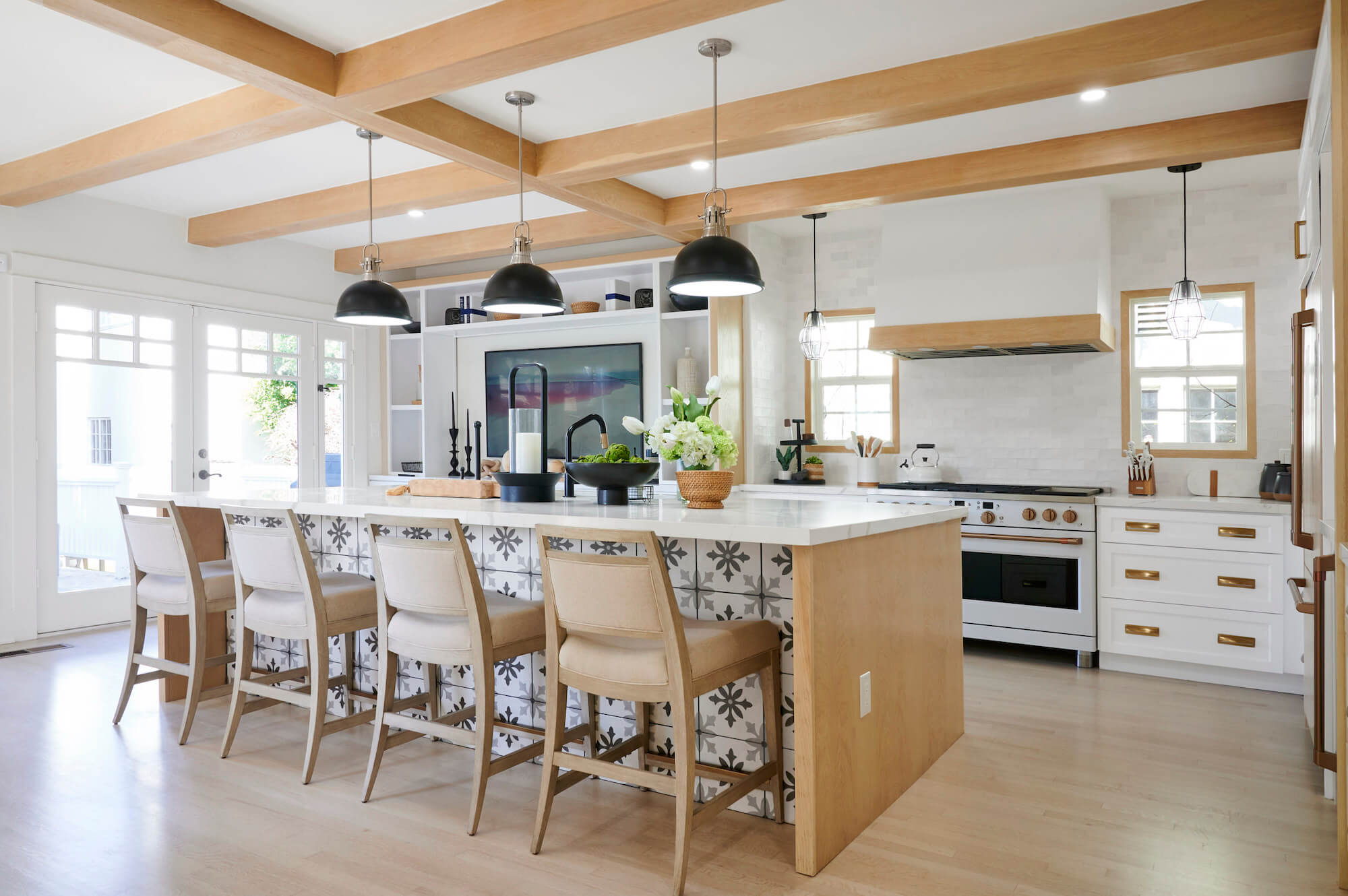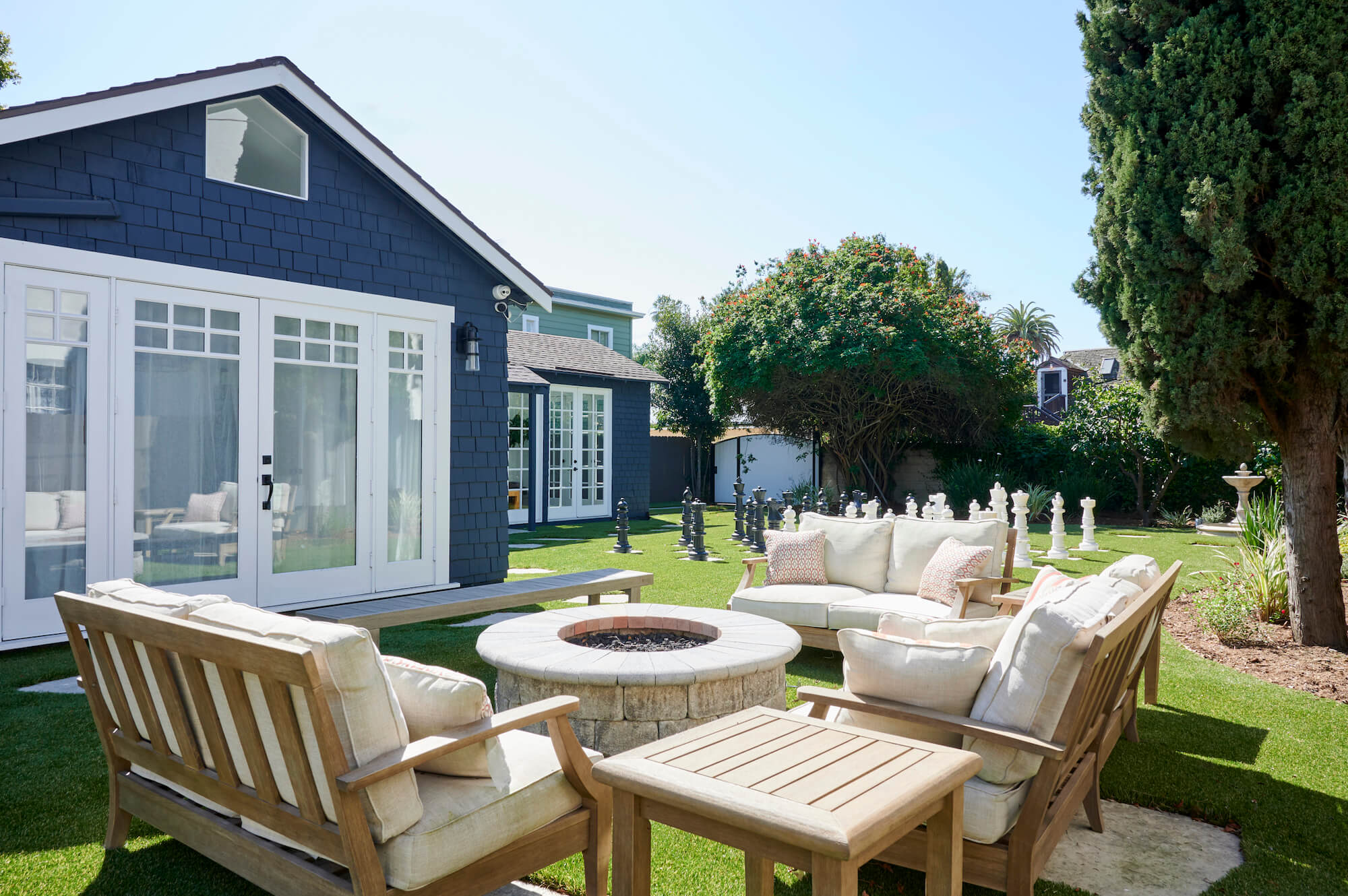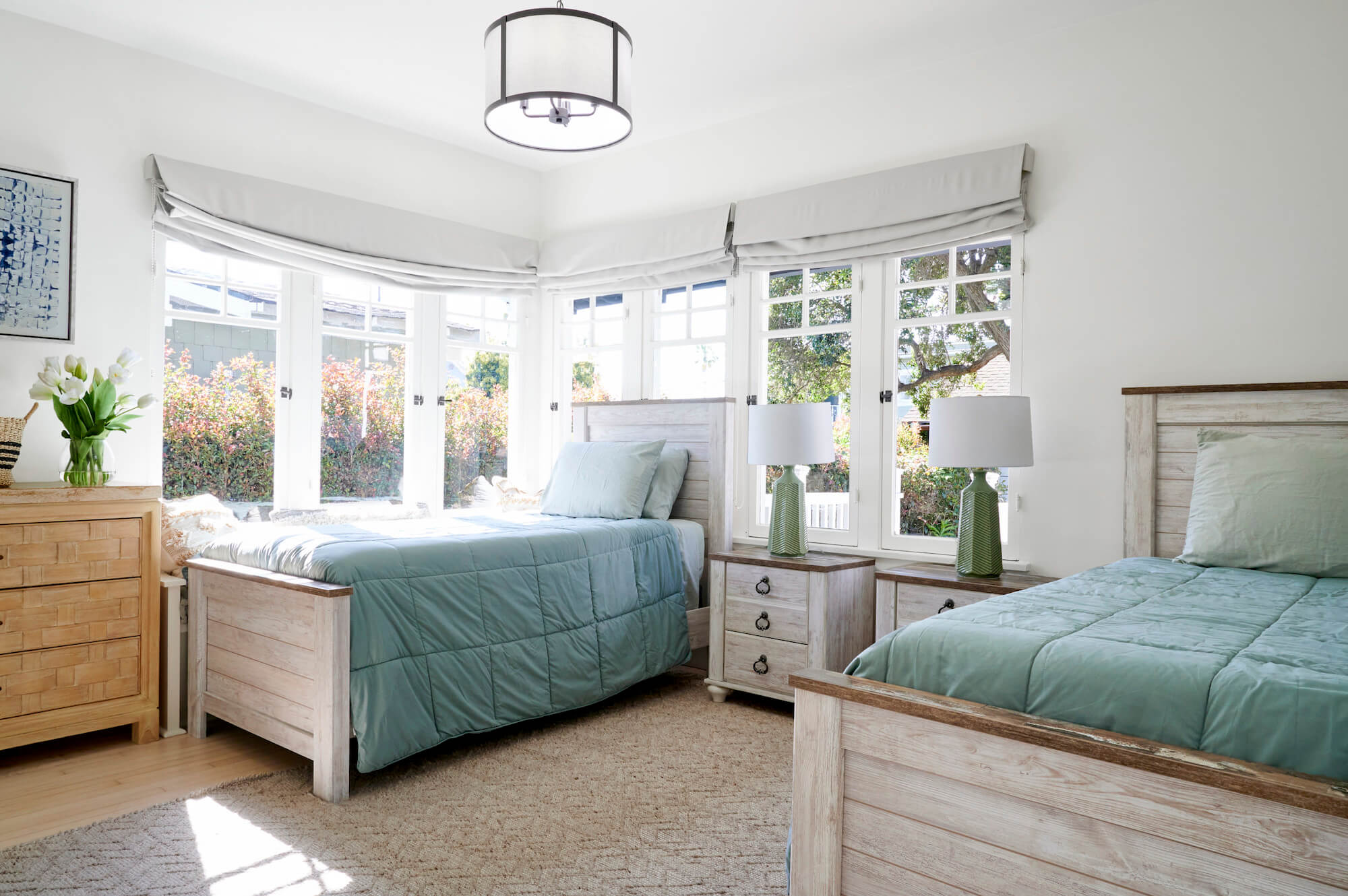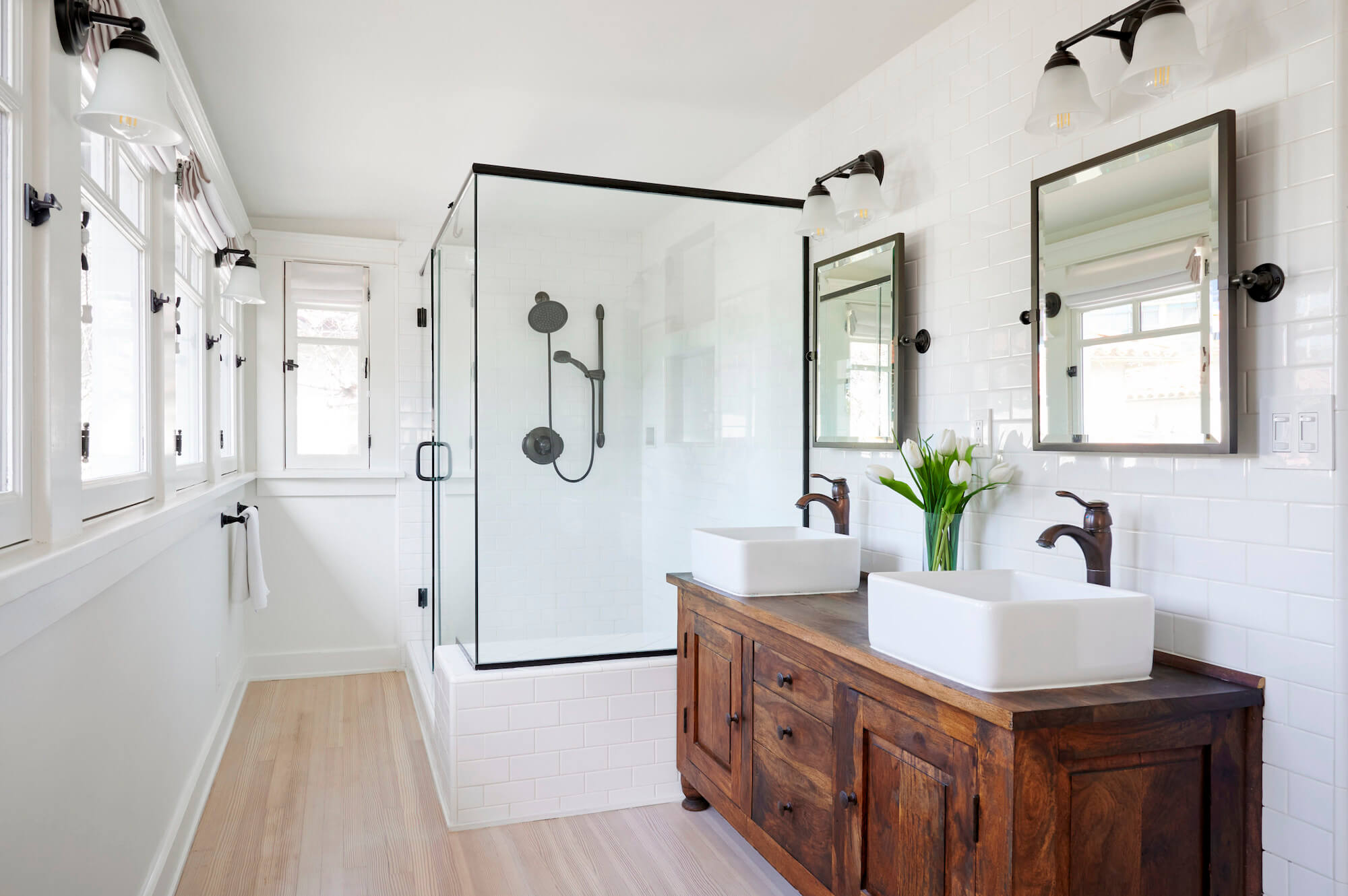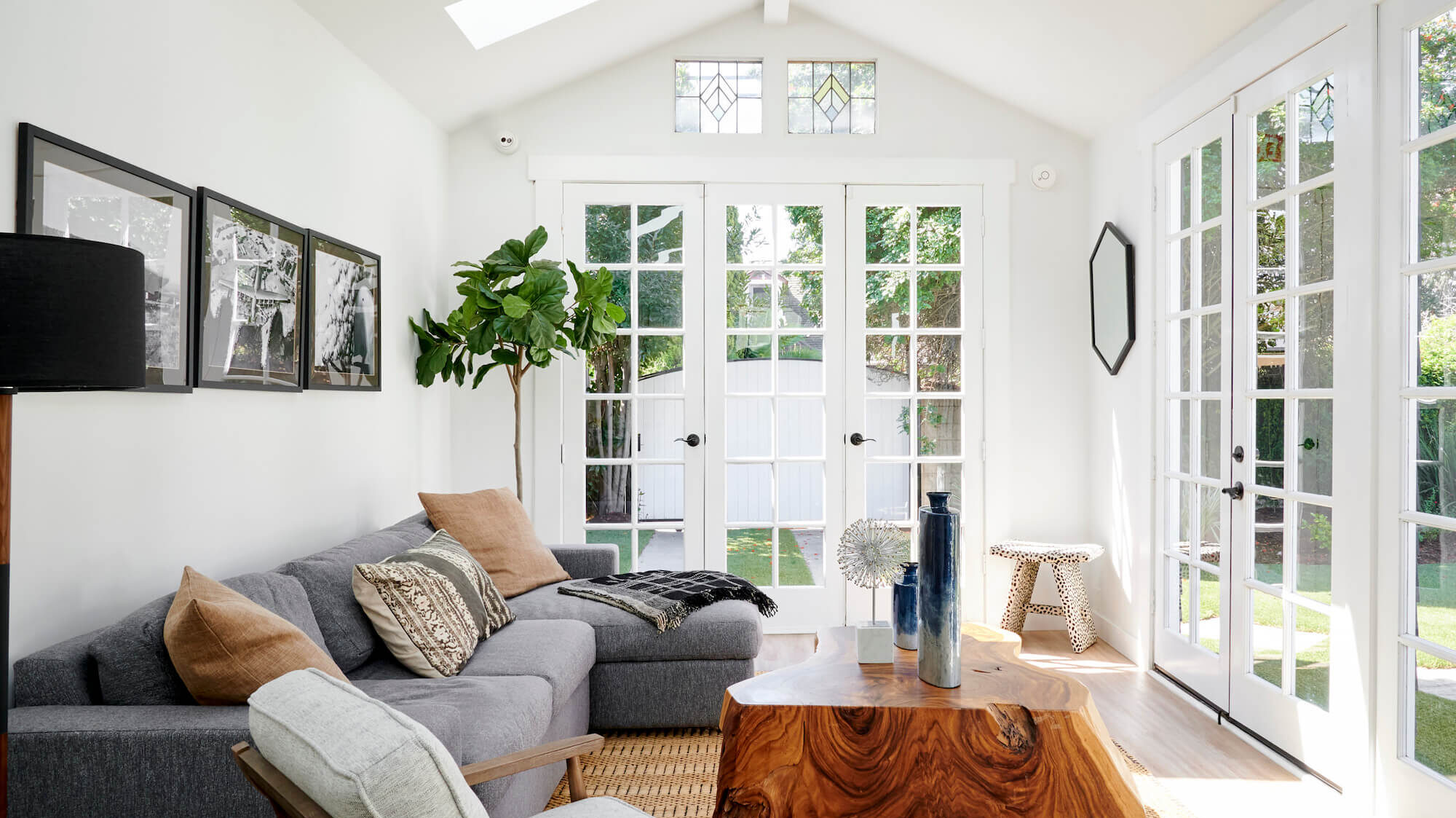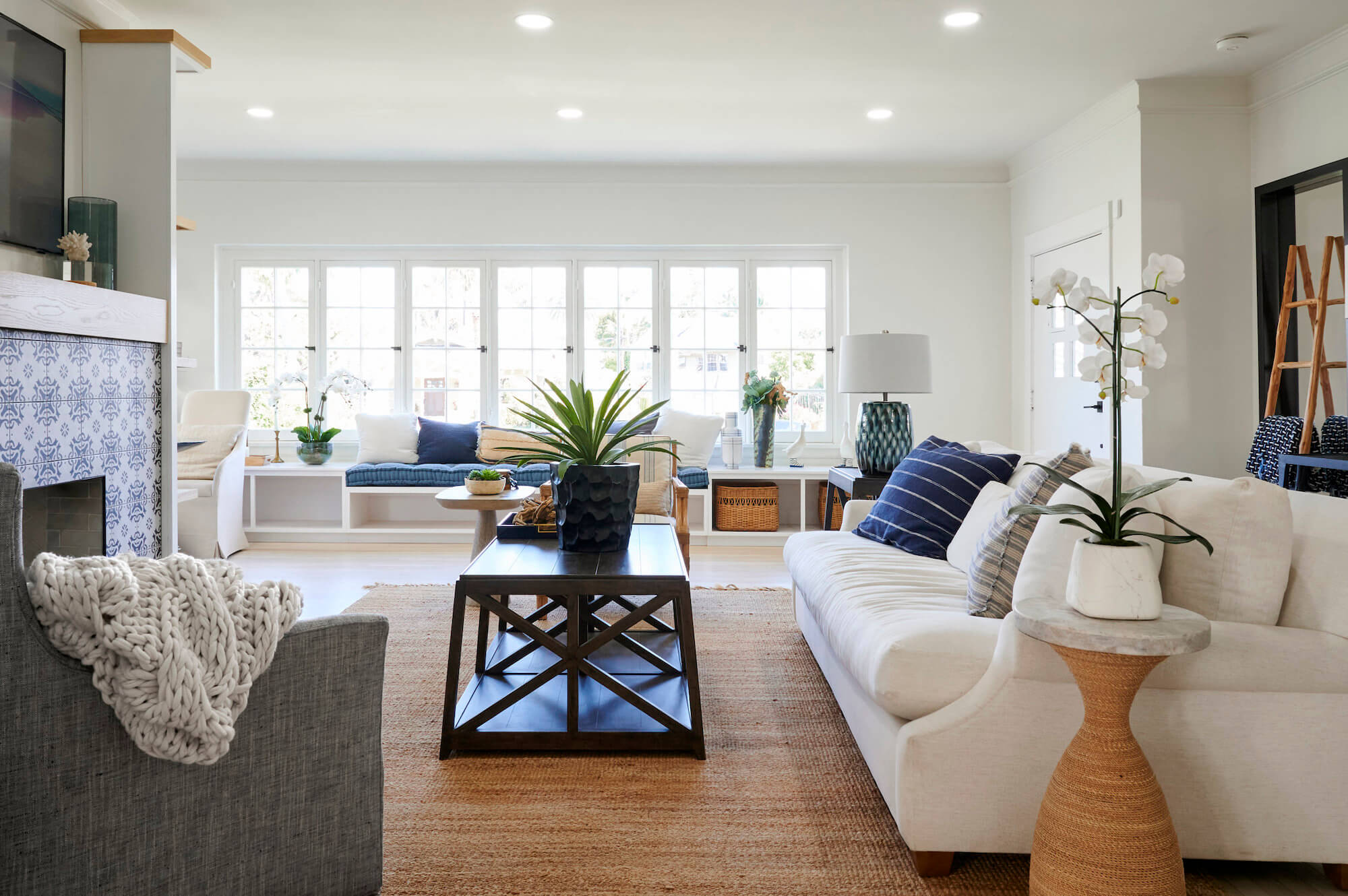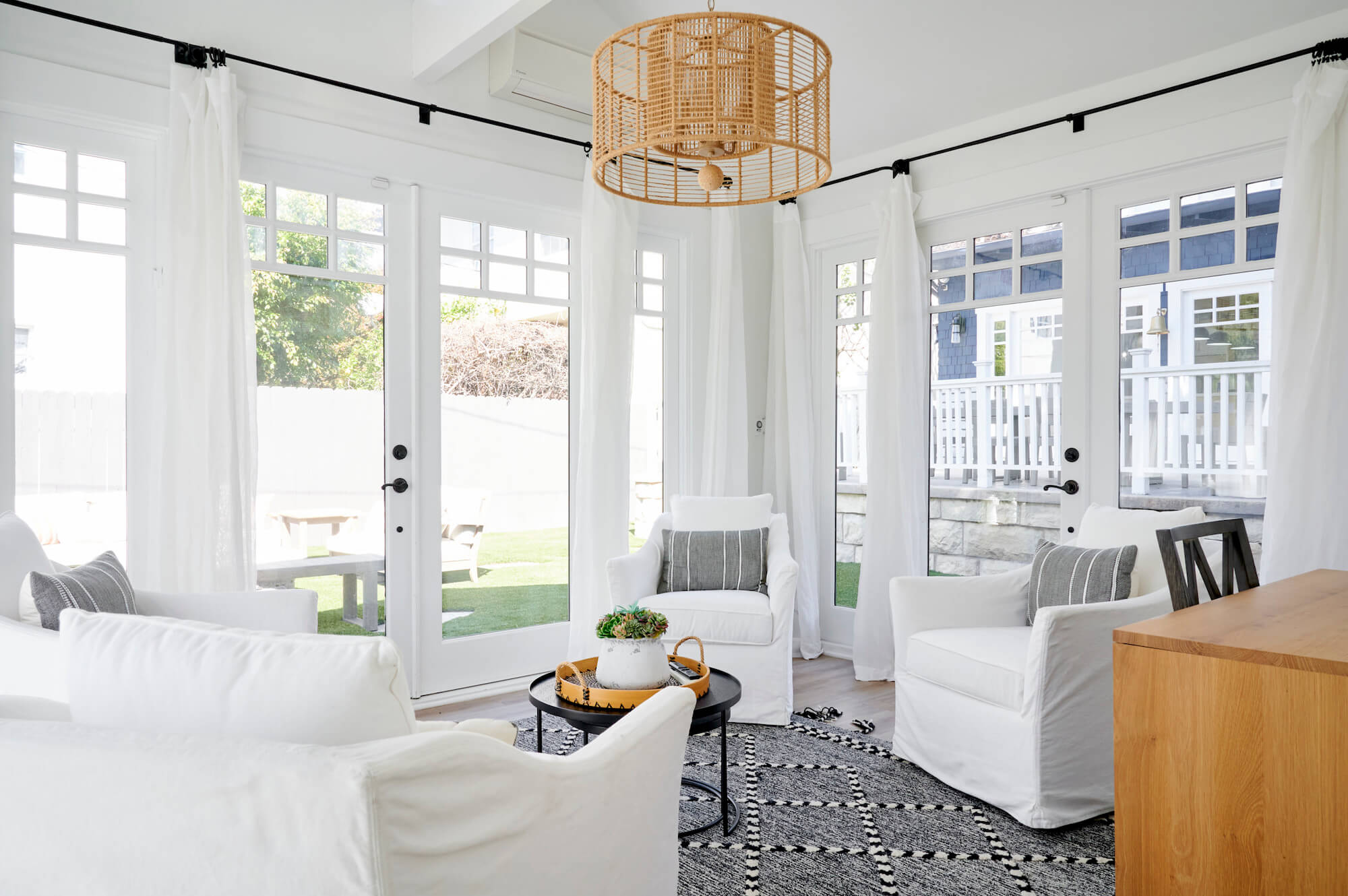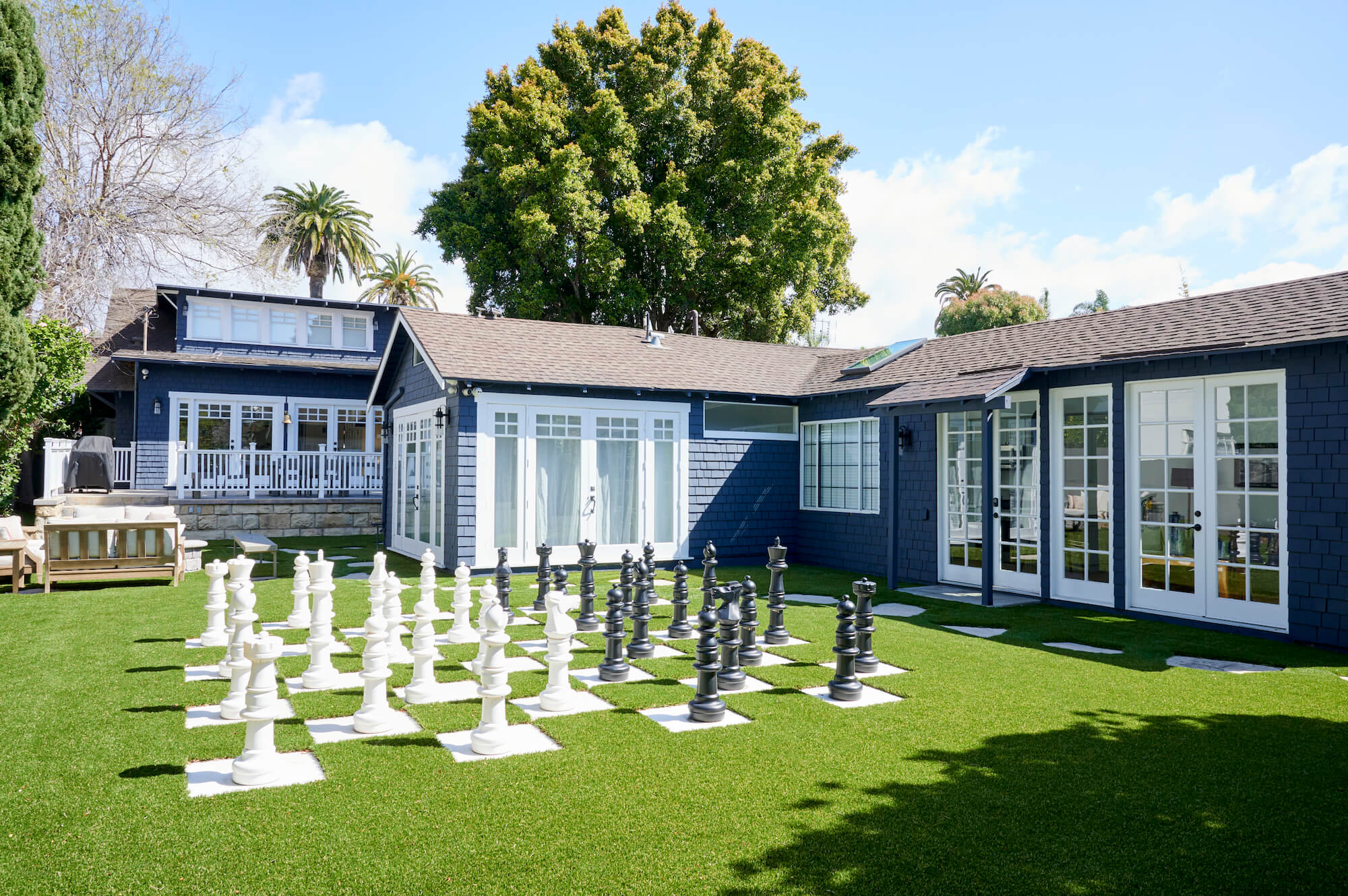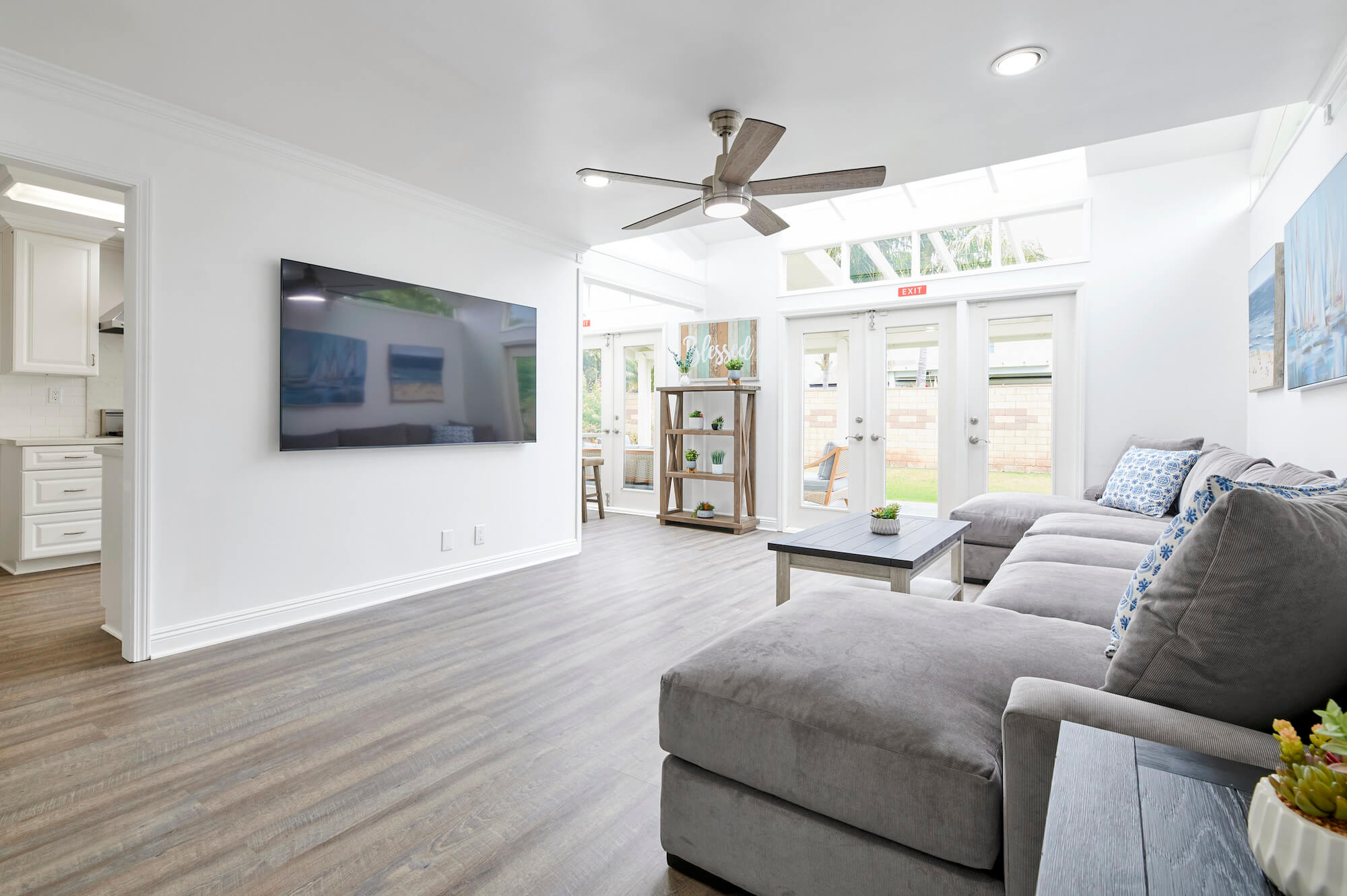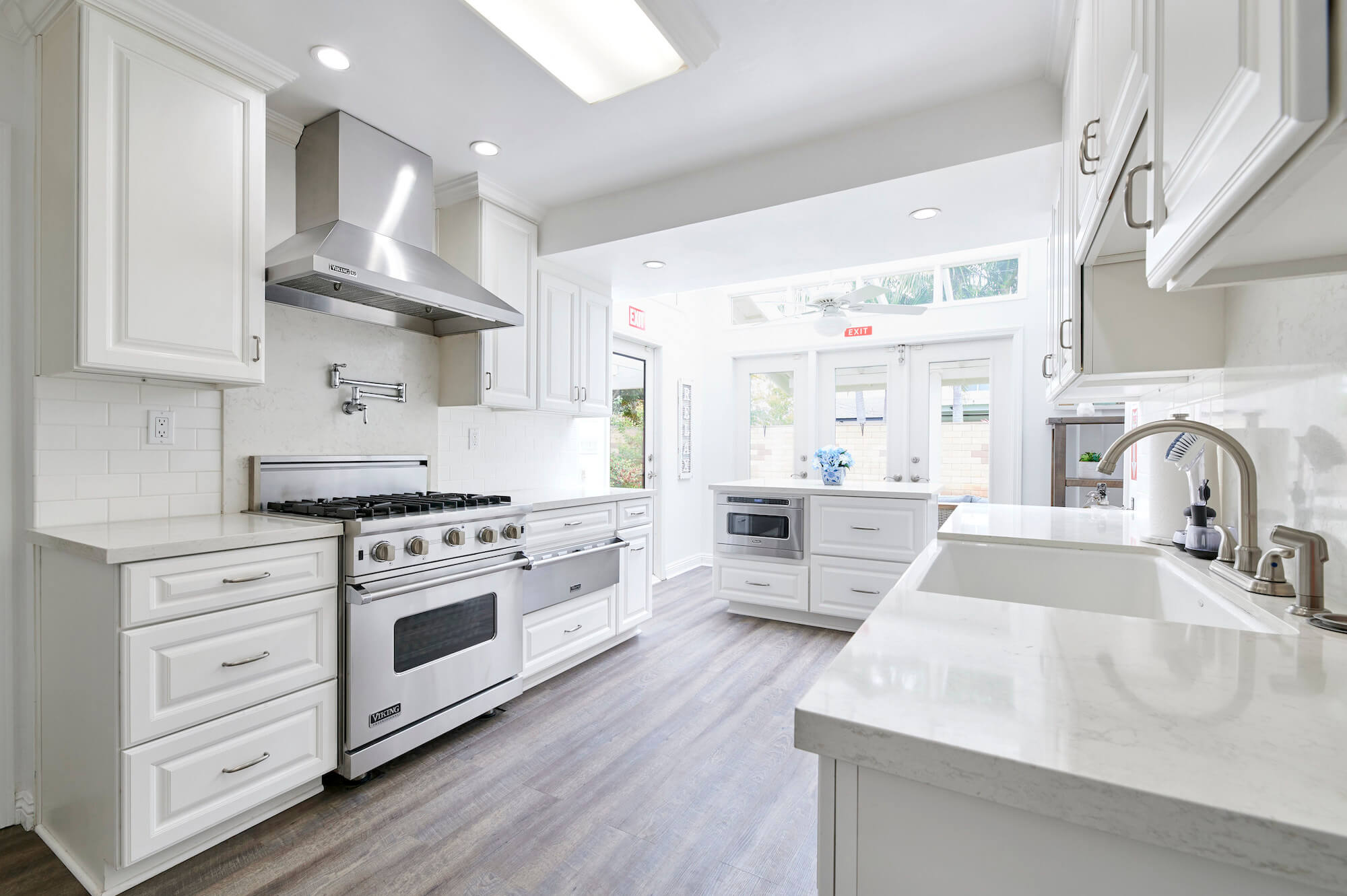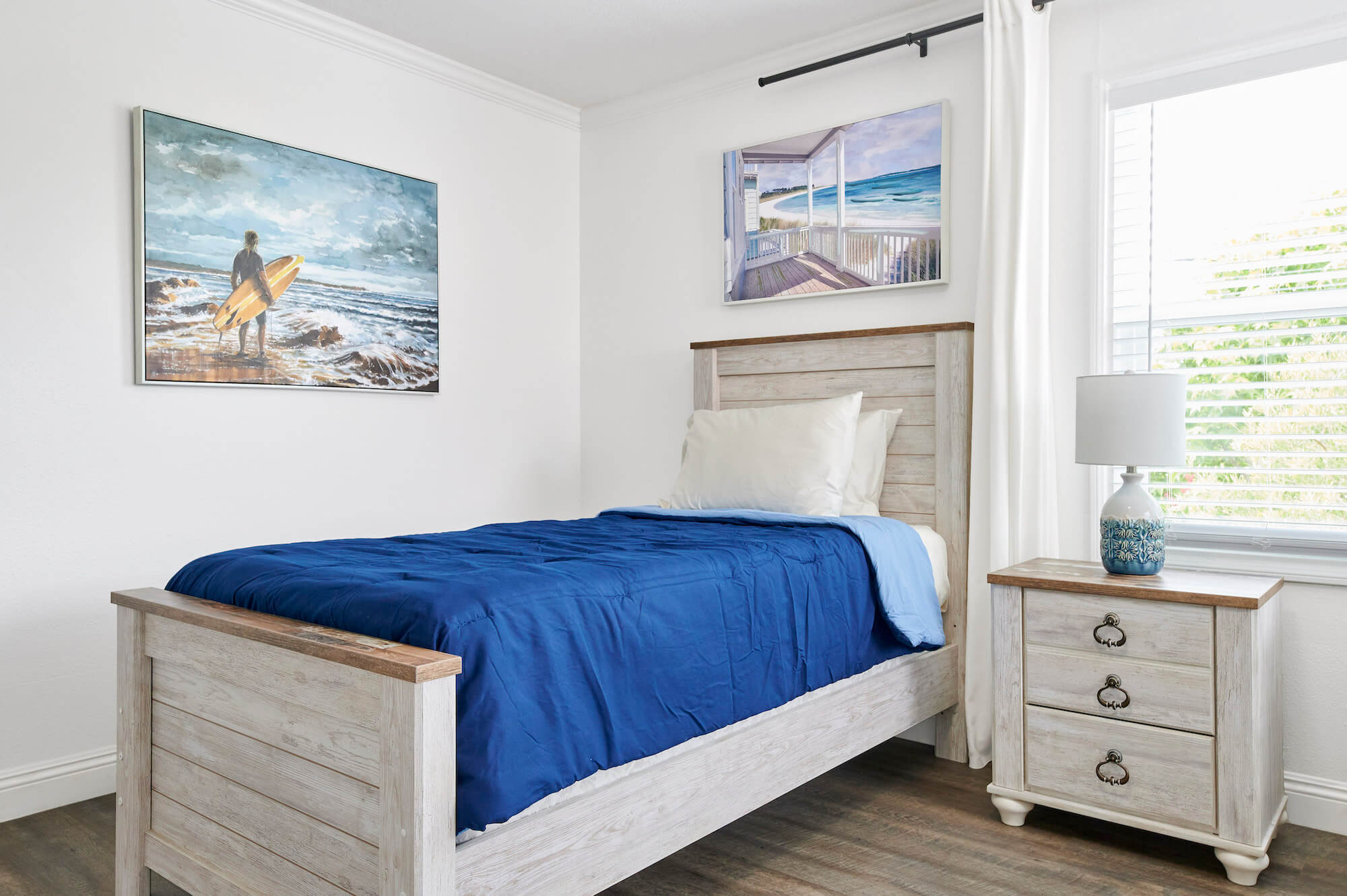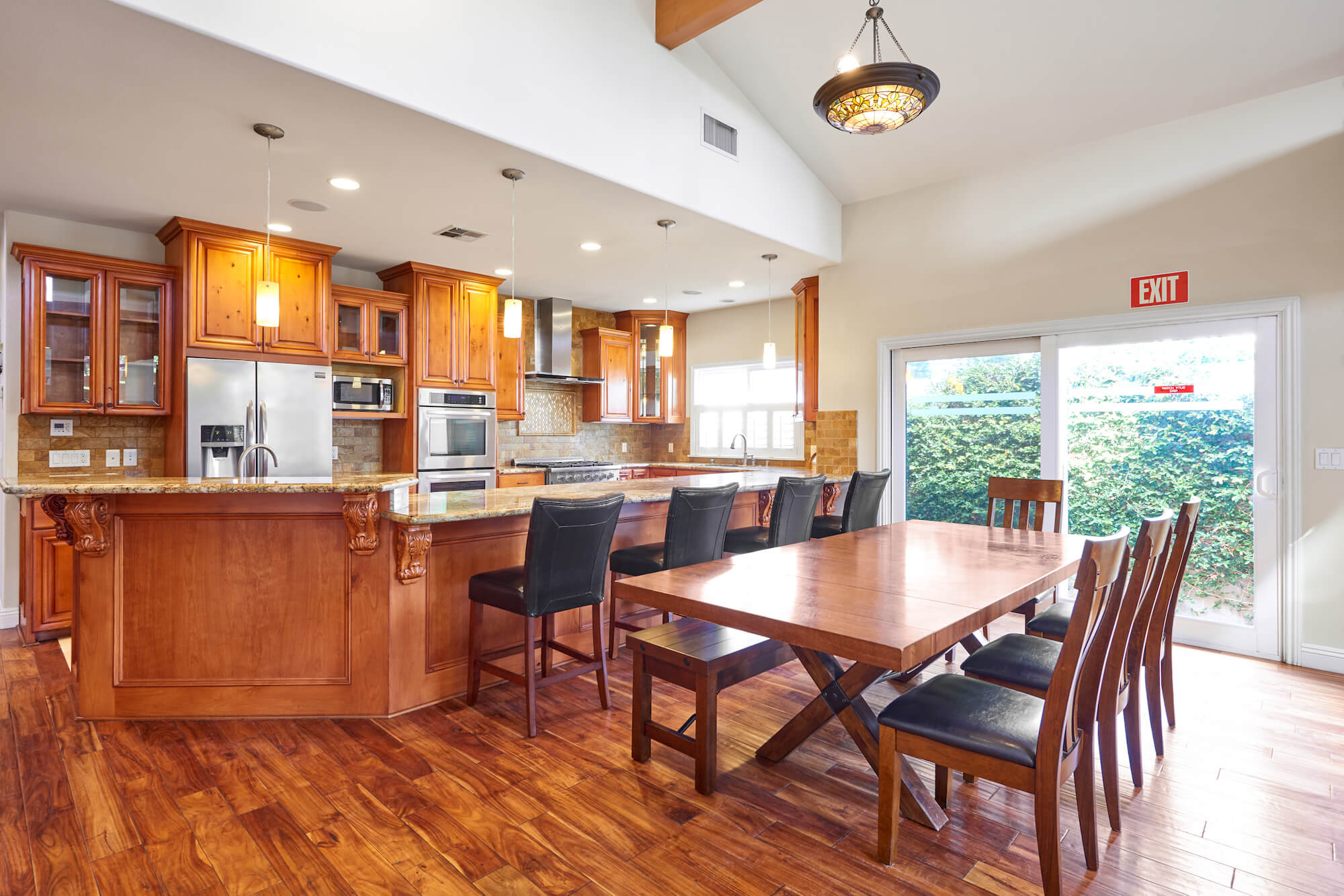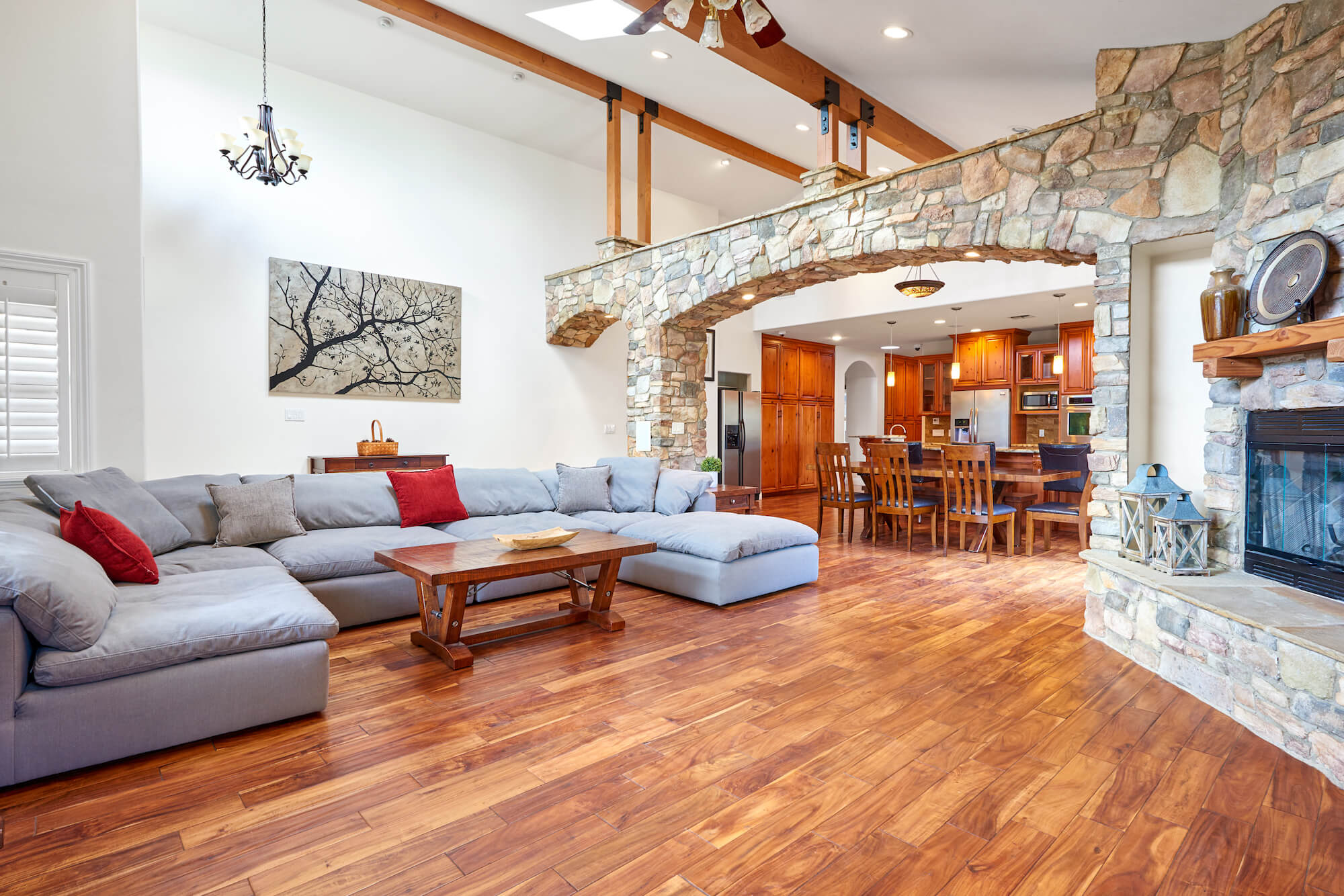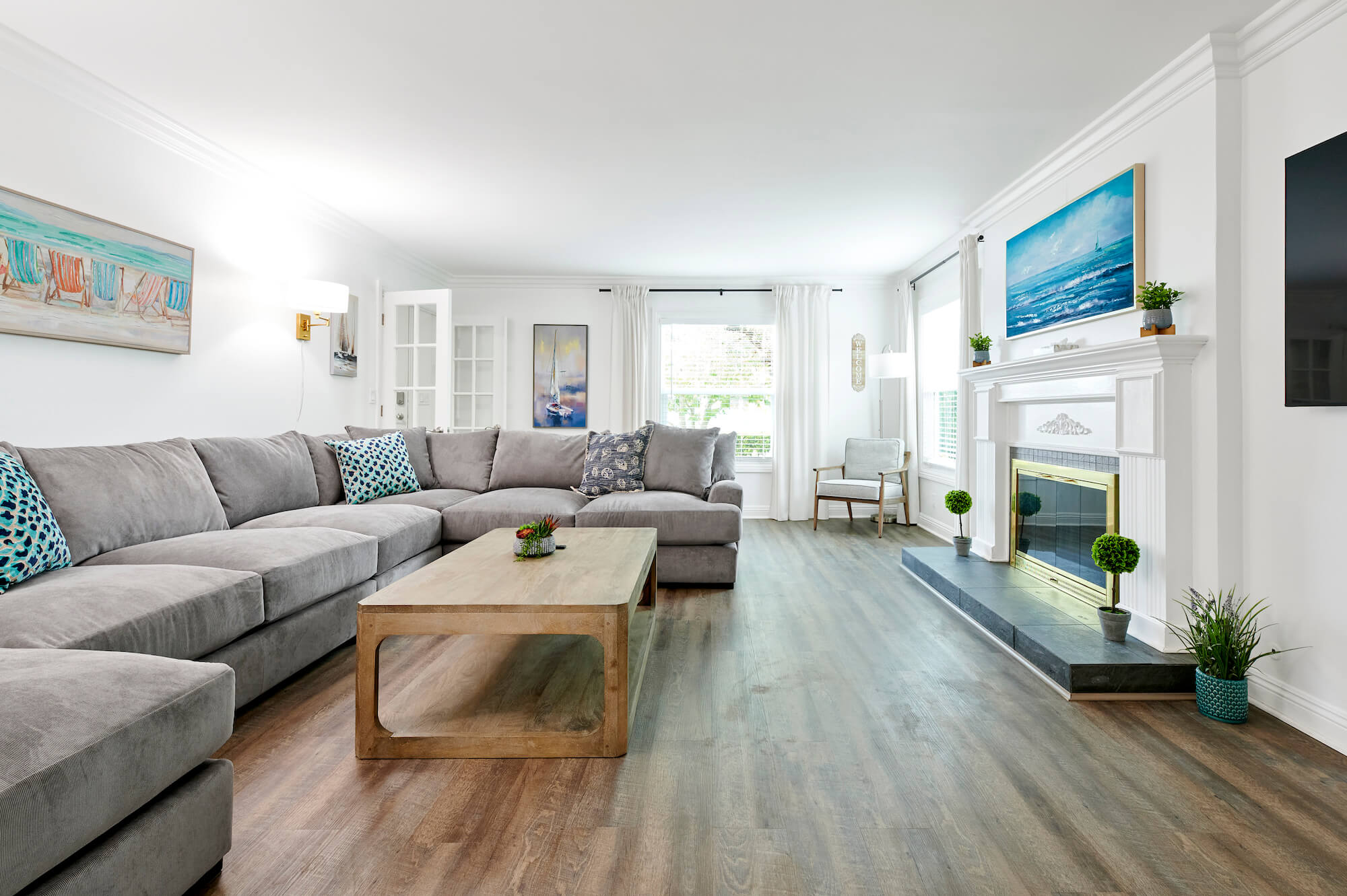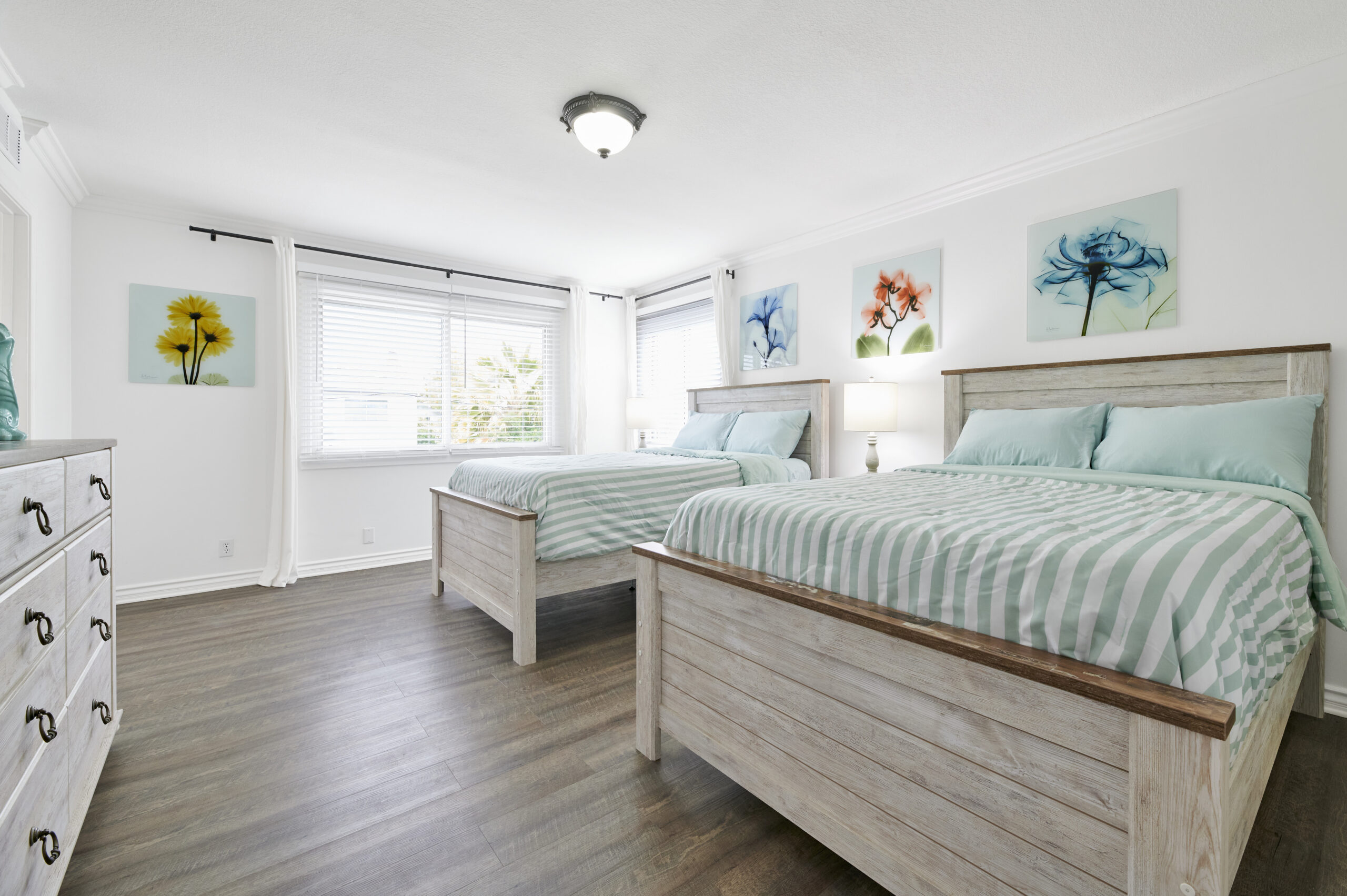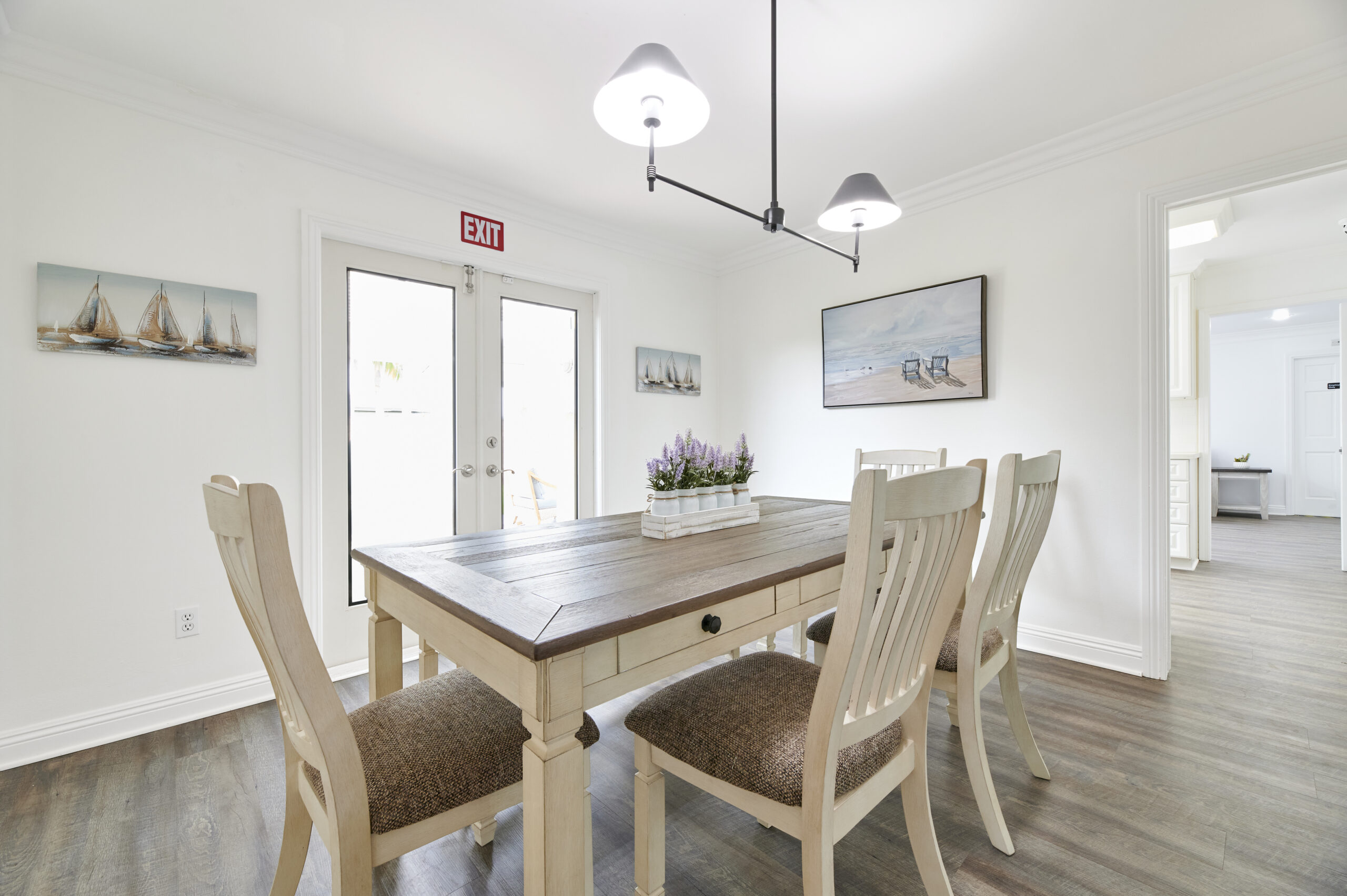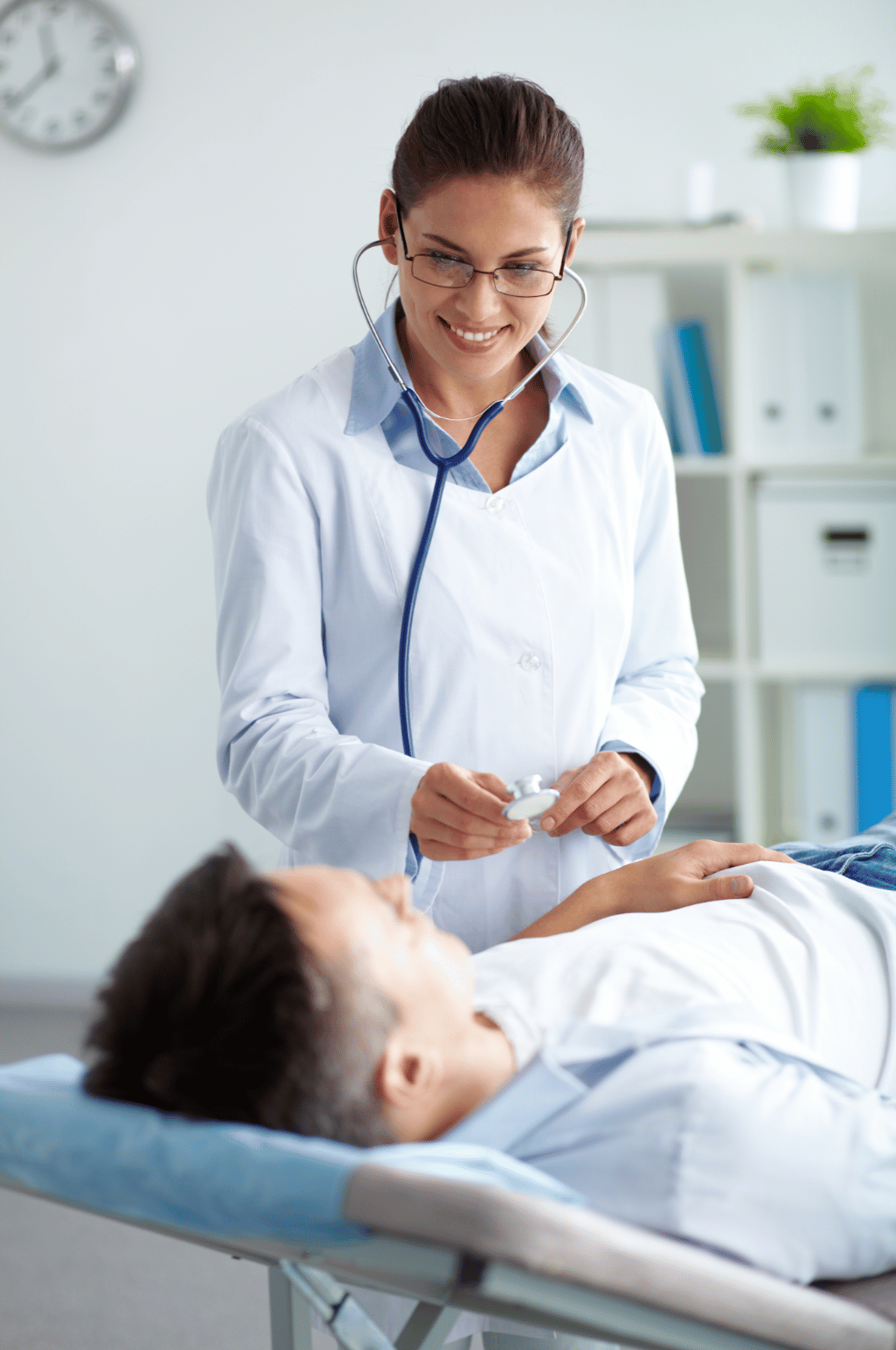Our Orange County Drug & Alcohol Rehab Centers
- By Joe Gilmore
- Reviewed by Jenni Busse
- 04/19/2024
- Authored by Joe Gilmore
- Clinically Reviewed by Jenni Busse
- Last Updated 04/19/2024
Here at Gratitude Lodge’s rehab centers in Orange County, we offer warm and welcoming rehab environments and expert staff trained to provide care and guidance for every stage of your Orange County rehab and addiction treatment.
Addiction recovery can be a challenging process, whether it’s for illicit drugs, prescription medications, or alcohol. With individualized care and group therapy in a structured setting, you’ll discover how to manage your addiction and build a foundation for lasting sobriety in our addiction treatment programs in Orange County.
Whether you require drug and alcohol rehab in Orange County or dual diagnosis treatment, we can help you at Gratitude Lodge.
Inside Our Orange County Facilities
When you walk into Gratitude Lodge, you’re treated like family, not just another patient. We are a community built on empathy with a passion for helping others experience the freedom that comes from conquering addiction.
Swipe below to view our upscale inpatient treatment center:
How our Orange County Drug & Alcohol Addiction Treatment Programs Can Help

Evidence-Based Treatment
All Gratitude Lodge rehabs offer specialized and evidence-based treatment programs for the following addictions:
- Alcohol Addiction
- Opioid Addiction
- Cocaine Addiction
- Heroin Addiction
- Benzodiazepine Addiction
- Meth Addiction
The best Orange County alcohol rehab or drug treatment will be different for each person, but the most effective pathway to recovery typically begins with a supervised medical detox.
Drug & Alcohol Detox Orange County
Before engaging with drug or alcohol rehab in Orange County, consider a supervised medical detox program. Detox is not a substitute for rehab, but rather the first step in an ongoing chain of events in addiction recovery.
Detox normally takes between one and two weeks. While drugs or alcohol are purged from your system, your treatment team may administer medications. These medications can alleviate some withdrawal symptoms, and also reduce the intensity of drug or alcohol cravings.
Detoxing helps address the issue of physical dependence and prepares you for ongoing therapy to tackle the psychological component of addiction.
There are two main delivery methods for drug and alcohol addiction treatment following out alcohol detox in Orange County:
- Inpatient treatment
- Outpatient treatment

Get The Care You Need Today
At Orange County Rehab Centers - Gratitude Lodge

Inpatient Treatment
Inpatient treatment is the most intensive form of treatment on American Society of Addiction Medicine’s continuum of care. You remain at the treatment center for 30 to 90 days, engaging in intensive therapy in a structured setting.
Also known as residential rehab, inpatient treatment is generally advisable for those with severe substance use disorders and co-occurring mental health disorders. We offer 30-day inpatient programs for drug addiction and alcoholism at Gratitude Lodge.
Supportive Recovery Community
With founders who have been through recovery themselves, the atmosphere at Gratitude Lodge is rich in support, empathy, and camaraderie. This community of like-minded individuals is something that many of our clients carry with them long after they have completed our program. We foster a growing sober alumni community in our local area with sober events, online support groups, and ongoing care, so you can continue to stay plugged in even after recovery.

Don’t Let Addiction Control You | Orange County Rehab by Gratitude Lodge
FIND YOUR NEW BEGINNING AT GRATITUDE LODGE
Does Insurance Cover Drug and Alcohol Rehab In Orange County?
The 2010 ACA (Affordable Care Act) mandates health insurance providers to cover at least part of the costs of drug and alcohol addiction treatment in Orange County.
Consult your insurance provider to establish the extent and scope of coverage for addiction treatment. You should also determine what costs you will be expected to pay out of pocket and familiarize yourself with any restrictions to help you choose the most appropriate rehab center in Orange County.
MAT (Medication-Assisted Treatment)
MAT (medication-assisted treatment) is primarily used for the treatment of addictions to:
- Prescription opioid painkillers
- Heroin
- Alcohol
Medication-assisted treatment can help to reduce the intensity of cravings and the severity of withdrawal symptoms during detox and recovery. The prescribed medications serve the following functions:
- Blocking the rewarding effects of opioids or alcohol
- Normalizing brain chemistry
- Soothing physiological cravings
- Regulating body functions
The medications achieve these goals without being addictive and without delivering the euphoric or negative effects of the substance of abuse.
MAT is most effective as part of an integrated treatment plan including behavioral therapies and addiction counseling. Not only can medication-assisted treatment streamline the detox and withdrawal process by alleviating physical symptoms, but it can also help mitigate the psychological component of addiction recovery.
In addition to FDA-approved medications to ease withdrawal symptoms and inhibit further substance use, MAT may involve any of the following medications as required:
- Antidepressants
- Anti-anxiety medications
- Sleep aids
- Anti-nausea medications
The medications prescribed for MAT are all approved by the FDA (Food and Drug Administration). MAT programs are clinically-driven and strongly evidence-based.
Medication-assisted treatment for drug addiction is proven effective for reducing the need for inpatient detox in those addicted to both heroin and prescription opioid painkillers.
Many studies also illustrate the benefits of medication-assisted treatment for alcohol addiction.
Underpinning any MAT program is one core goal: sustained recovery without relapse.
Research shows that when MAT and supplementary therapies are delivered simultaneously, the combined approach can minimize the likelihood of relapse, improve retention in treatment, and successfully treat both alcohol use disorder and opioid use disorder.
CBT (Cognitive Behavioral Therapy)
Cognitive behavioral therapy, or CBT, is a form of psychotherapy or talk therapy that is effective for treating all addictions and mental health conditions.
A therapist will help you to examine recurring thoughts or beliefs that are unhealthy or negative, as well as the resulting unhealthy behaviors, in order to begin implementing change. They will also help you to identify what triggers lead you to use drugs or alcohol. You will then develop and learn to implement healthy coping mechanisms with the help of a therapist.
CBT can help you to identify and manage risky situations and can provide you with robust coping skills applicable throughout your ongoing addiction recovery in Orange County.


Individual Counseling
Individual counseling sessions while in treatment give you the chance to address the underlying mental and emotional aspects of your drug or alcohol addiction. A therapist will meet with you to help you explore any underlying contributors, and work with you to develop an individualized treatment plan. Through an ongoing dialogue with your counselor, you can begin to unpack issues associated with substance abuse and become more self-aware.
One-to-one sessions aim to help you achieve short-term recovery goals and to impart skills that may help you to restructure your life substance-free.
Group Counseling
SAMHSA (Substance Abuse and Mental Health Services Administration) reports that group counseling can be as effective as individual therapy.
Group therapy and counseling while in treatment allows you to benefit from the support and help of peers undergoing similar experiences.

Get The Support You Or Your Loved One NeedS Today
At Orange County Rehab Centers - Gratitude Lodge
Mood Disorder Treatment in Orange County
Mood disorders are also known as affective disorders. This broad term encompasses all depressive disorders, as well as bipolar disorder. Both of these conditions impact your mood and functioning.
Among those with mood disorders, moods may range from low (depressed) to high or irritable (manic), characterized by dramatic swings between these extremes in the case of bipolar disorder.
COMMON MOOD DISORDERS:
Examples of common mood disorders include:
Major depressive disorder impacts up to 6% of the US population, according to NIMH (National Institute of Mental Health) and is characterized by prolonged, persistent spells of extreme sadness.
Also known as Persistent Depressive Disorder, Dysthymia is a chronic form of depression affecting 1.5% of the U.S. population.
Substance-induced depression involves depression symptoms developing during or shortly after using substances, withdrawing from substances, or after being exposed to a medication.
This form of depression occurs in direct response to the physical symptoms of an underlying medical condition.
Bipolar disorder, previously known as manic depression, involves alternating periods of mania and depression. Bipolar is surprisingly common, affecting almost 1% of the U.S. population.
Cyclothymia is a disorder with emotional ups and downs, although less intense than those experienced in bipolar disorders.
SAD (seasonal affective disorder) is a form of depression associated with fewer daylight hours from fall to spring.
Disruptive mood dysregulation disorder triggers a chronic irritability in children often manifesting in temper outbursts inconsistent with the age of the child.
Mood changes associated with a woman’s premenstrual cycle.
Mood disorders often respond favorably to treatment, typically a combination of antidepressants and mood-stabilizing medications.
Most treatment for mood disorders will involve both medications and psychotherapy – forms of talk therapy like CBT (cognitive behavioral therapy) or DBT (dialectical behavioral therapy).
MEDICATIONS FOR MOOD DISORDER TREATMENT
The following medications are often used to treat depression and bipolar disorders:
SSRIs (selective serotonin reuptake inhibitors) and SNRIs (serotonin and norepinephrine reuptake inhibitors) have similar mechanisms of action. Both can be effective for the treatment of depression.
Some older types of antidepressants can also be effective, although these typically trigger more adverse side effects. Most antidepressants will take a few weeks before taking effect. You may need to try more than one type of antidepressant before your symptoms are alleviated.
The manic and mixed episodes associated with bipolar disorder respond favorably to atypical antipsychotic medications. These medications can also soothe some symptoms of depression in some people.
Mood stabilizers help to regulate the mood swings prevalent among those with bipolar disorder.
Provide Your Loved One With The Help They Need
Find Hope And Recovery At Gratitude Lodge
Psychotherapy for Depression and BPD
Many forms of psychotherapy can effectively treat the symptoms of depression and bipolar. These include:
- CBT (cognitive behavioral therapy)
- DBT (dialectical behavior therapy)
- Interpersonal therapy
- Problem-solving therapy
- Family therapy
With an accurate diagnosis, most mood disorders are treatable.

Dual Diagnosis Treatment
When a substance use disorder and a mental health condition present simultaneously, this is clinically termed dual diagnosis. Dual diagnosis is also known as a co-occurring disorder.
Addictions commonly implicated in dual diagnosis include:
- Marijuana
- Opioids painkillers
- Benzodiazepines
- Alcohol
- Cocaine
- Meth
- Heroin
Mental health disorders commonly implicated in dual diagnosis include:
- Major depressive disorder
- Anxiety disorder
- Panic disorder
- Bipolar disorder
- PTSD (post-traumatic stress disorder)
- Schizophrenia
With co-occurring disorders, either condition may develop first. Research shows that integrated dual diagnosis treatment produces more favorable outcomes than treating only the addiction or the mental health condition separately. Addiction and mental health are closely intertwined, with one condition frequently feeding the other.
Visit our insurance page to check if we work with your insurance provider about dual diagnosis treatment Orange County.
Gratitude Lodge’s Orange County Rehab Centers
At Gratitude Lodge, we have addiction treatment centers in Orange County, CA located in Long Beach and Newport Beach. All Gratitude Lodge treatment facilities offer access to:
- Supervised medical detoxification programs
- 30-day inpatient addiction treatment programs
- Intensive outpatient addiction treatment programs
- Dual diagnosis treatment programs
Whether you need inpatient rehab in Orange County or more affordable and flexible therapy in an outpatient setting, you or your loved one will get individualized treatment that draws from these interventions at Gratitude Lodge:
- MAT (medication-assisted treatment)
- Psychotherapy / Individual counseling
- Group counseling
- Family therapy
- Holistic therapies
Our pet-friendly alcohol and drug rehab provides an inclusive and supportive environment. Your treatment team will guide you through detox and ongoing therapy. When you complete your treatment program, you will leave Gratitude Lodge equipped with a comprehensive aftercare and relapse prevention plan.
When you are ready to kickstart your recovery, contact admissions at 800-994-2184.
Verify your insurance provider covers treatment
Alcohol and Drug Rehab in Orange County - Gratitude Lodge
Orange County Drug & Alcohol Rehab FAQs
Most drug & alcohol rehab treatment facilities recommend a minimum stay for patients of at least 30 days to help you or your loved one fully detox and begin recovering from addiction. At Gratitude Lodge, access 30-day inpatient treatment programs or intensive outpatient rehab lasting for several months.
The length of time that people stay in rehab may vary depending on the severity of the addiction, the type of treatment, and any co-occurring mental health disorders. The most common inpatient programs last for 30, 60, or 90 days, while most outpatient programs last for three to four months. Choose from 30-day residential rehab or intensive outpatient treatment at Gratitude Lodge.
The cost of rehab for 3 months can vary widely depending on factors such as the type of treatment program, the location and amenities, and the level of care provided. 90-day inpatient programs cost from $10,000 to $100,000 or more. At Gratitude Lodge, our 30-day residential program provides you with an affordable pathway to inpatient treatment in Orange County.
At Gratitude Lodge, we combine evidence-based addiction treatments with holistic therapies to treat all types of addictions. Addictions to alcohol and opioids respond well to MAT (medication-assisted treatment). MAT is delivered together with behavioral interventions like CBT (cognitive behavioral therapy) and counseling.
Addictions (substance use disorders) are chronic and relapsing brain conditions. Like all chronic conditions, substance use disorder has high relapse rates of between 40% and 60%. If you relapse after rehab, this does not mean that your treatment has failed or your recovery is derailed. Instead, your ongoing recovery plan needs tweaking. All Gratitude Lodge treatment programs include a robust aftercare component to maximize the chance of your sustained recovery.
The Benefits of an Orange County Rehab
With a robust local sober community, world-class treatment centers, and a serene and picturesque setting that fosters healing and recovery, Orange County, California, stands out as an exceptional location to attend rehab.
Our region offers a beautiful natural environment with breathtaking beaches, tranquil parks, and a pleasant climate.
Orange County also boasts a wide variety of top-notch rehab facilities and treatment centers. Patients have access to cutting-edge treatments, therapy sessions, and support groups that foster physical, emotional, and psychological well-being.
The region’s strong recovery community also plays a pivotal role in supporting individuals through their rehabilitation process. The abundance of support groups and meetings in an Orange County residential treatment center provides a sense of belonging, reducing feelings of isolation during recovery and promoting long-term success.
Orange County’s captivating landscape, outstanding rehab facilities, innovative treatments, and supportive community create an ideal environment for patients seeking solace and rejuvenation during their rehabilitation journey.


